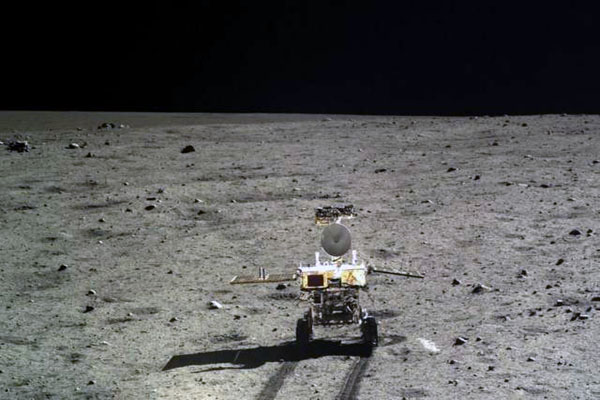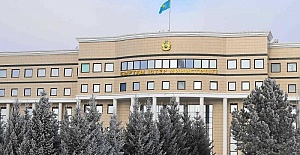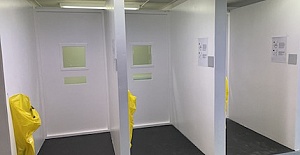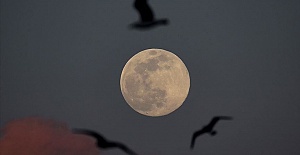The abnormality occurred due to "complicated lunar surface environment," the State Administration of Science, Technology and Industry for National Defence (SASTIND) said on Saturday, without giving further details.
The abnormality emerged before the rover entered its second dormancy at dawn on Saturday as the lunar night fell, according to SASTIND.
The lander, another part of the Chang'e-3 probe, also "fell asleep" earlier on Friday.
The pair went dormant for two weeks about one month ago when the first lunar night of the mission occurred.
One night on the Moon is about 14 days on Earth, during which the temperature falls below minus 180 Celsius. During the lunar night, there is no sunlight to provide power to Yutu's solar panel.
After the first dormancy, the lander's Moon-based optical telescope carried out observation of the sky, while its extreme ultraviolet camera observed the plasmasphere over the Earth, according to SASTIND.
The lunar probe mission, comprising the lander Chang'e-3 and rover Yutu, was launched in December as part of the second phase of the Chinese Lunar Exploration Programme.
The mission, which made the first soft-landing on the Moon since 1976, makes China the third country to successfully send a lunar rover to the moon, after the US and the former Soviet Union.


 Margaret Greer has been sworn in as the new Mayor of Enfield
Margaret Greer has been sworn in as the new Mayor of Enfield Prime Minister Keir Starmer's 2025 Easter message
Prime Minister Keir Starmer's 2025 Easter message After Nesil Caliskan a by-election will be held in Jubilee ward in Enfield
After Nesil Caliskan a by-election will be held in Jubilee ward in Enfield Publishing the analysis, Labour’s Cllr Ergin Erbil said Everybody in Enfield deserves basic rights
Publishing the analysis, Labour’s Cllr Ergin Erbil said Everybody in Enfield deserves basic rights Great respect for Ataturk and enthusiastic youth celebration in England
Great respect for Ataturk and enthusiastic youth celebration in England UK AMBASSADOR TO TURKEY VISITS FETHIYE
UK AMBASSADOR TO TURKEY VISITS FETHIYE Journalists from Europe held the Turkish Media Workshop in Skopje
Journalists from Europe held the Turkish Media Workshop in Skopje The European Union called on Turkey to uphold democratic values
The European Union called on Turkey to uphold democratic values Fenerbahce is the EuroLeague champion
Fenerbahce is the EuroLeague champion Brennan Johnson’s first-half strike seals London side’s win
Brennan Johnson’s first-half strike seals London side’s win The 'Prince of Paris' has impressed in his first EuroLeague season
The 'Prince of Paris' has impressed in his first EuroLeague season Saran Media And Euroleague Basketball Extend Media Rights Partnership for Four More Years
Saran Media And Euroleague Basketball Extend Media Rights Partnership for Four More Years UK, EU reach landmark agreement on food, fishing ahead of London summit
UK, EU reach landmark agreement on food, fishing ahead of London summit Perry Scott to become Enfield Council Chief Executive
Perry Scott to become Enfield Council Chief Executive Residents welcomed back to Edmonton Leisure Centre
Residents welcomed back to Edmonton Leisure Centre Barclays has become the biggest UK lender so far to cut mortgage rates
Barclays has become the biggest UK lender so far to cut mortgage rates



















